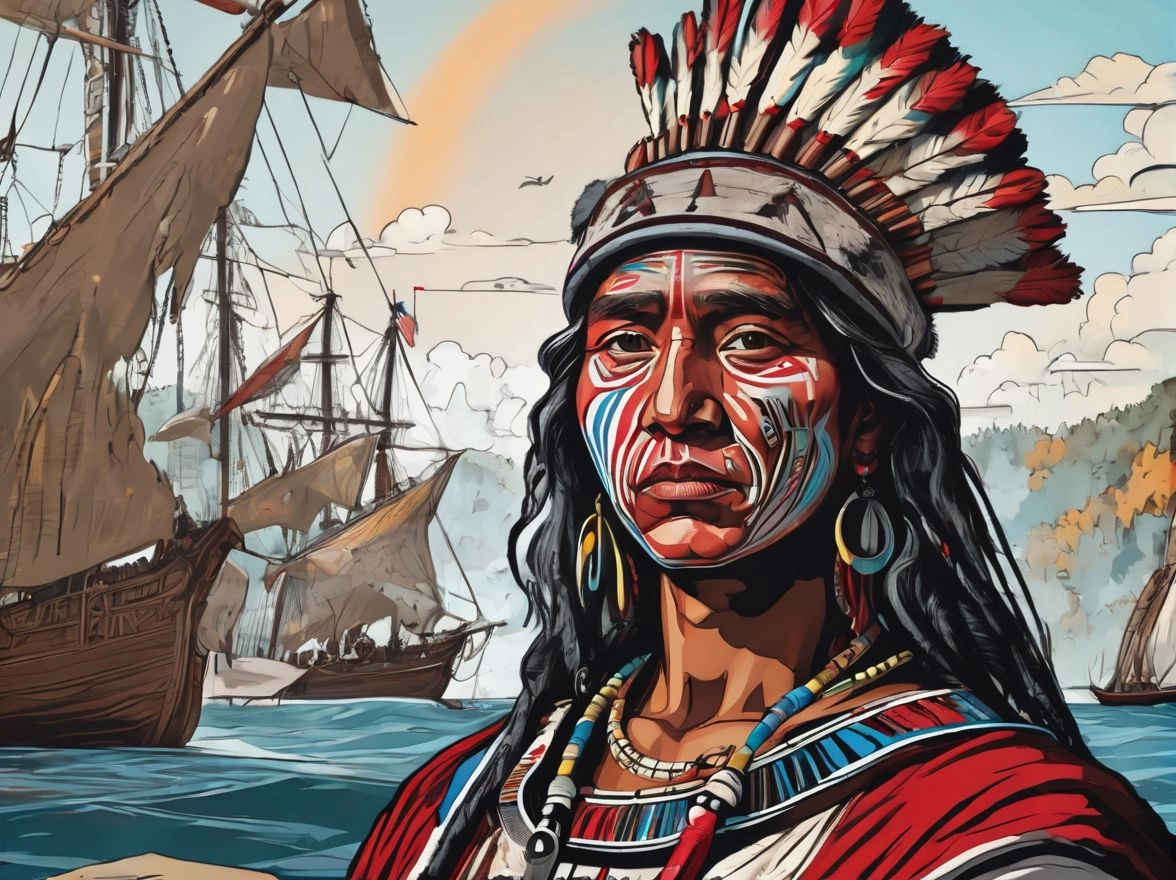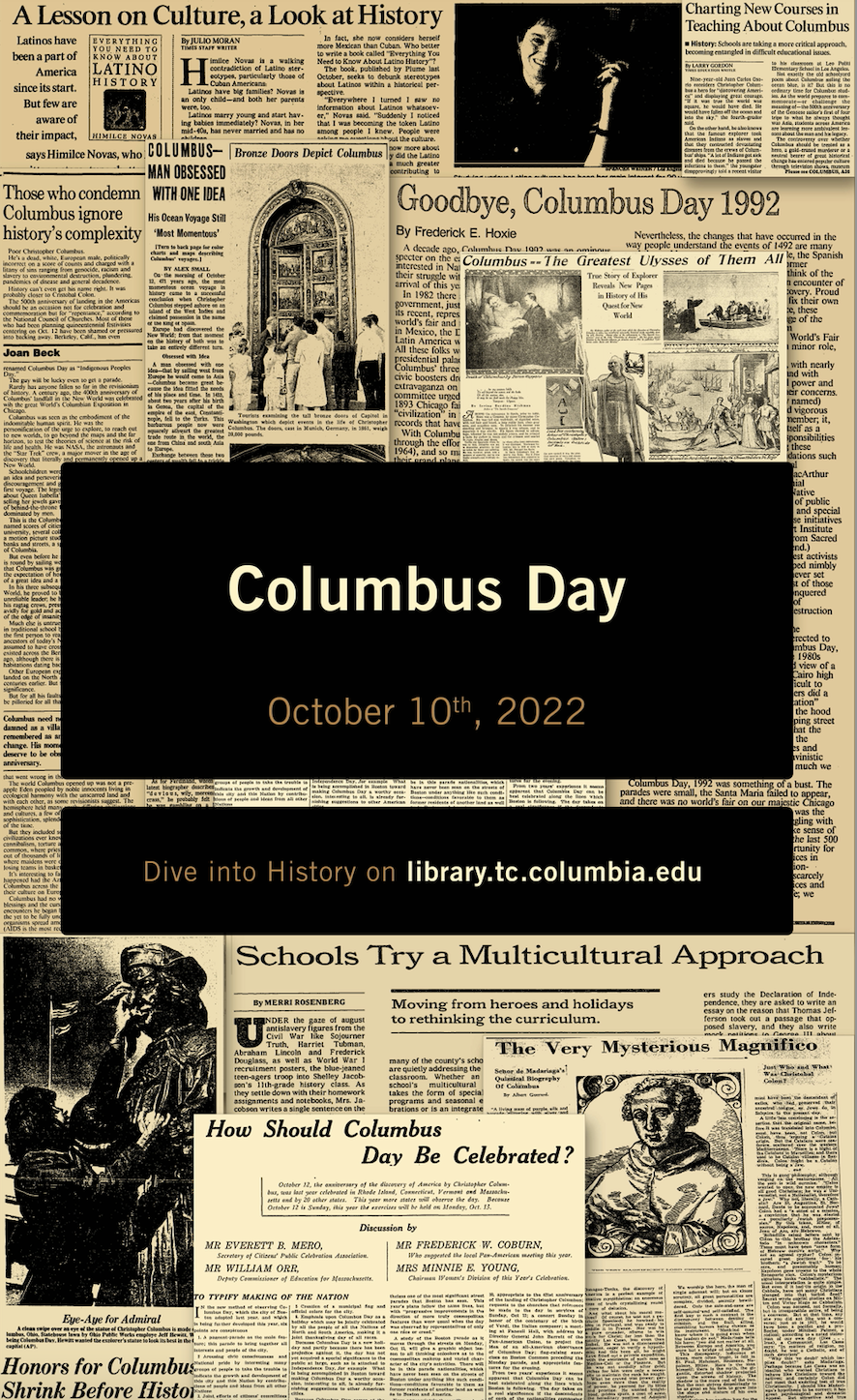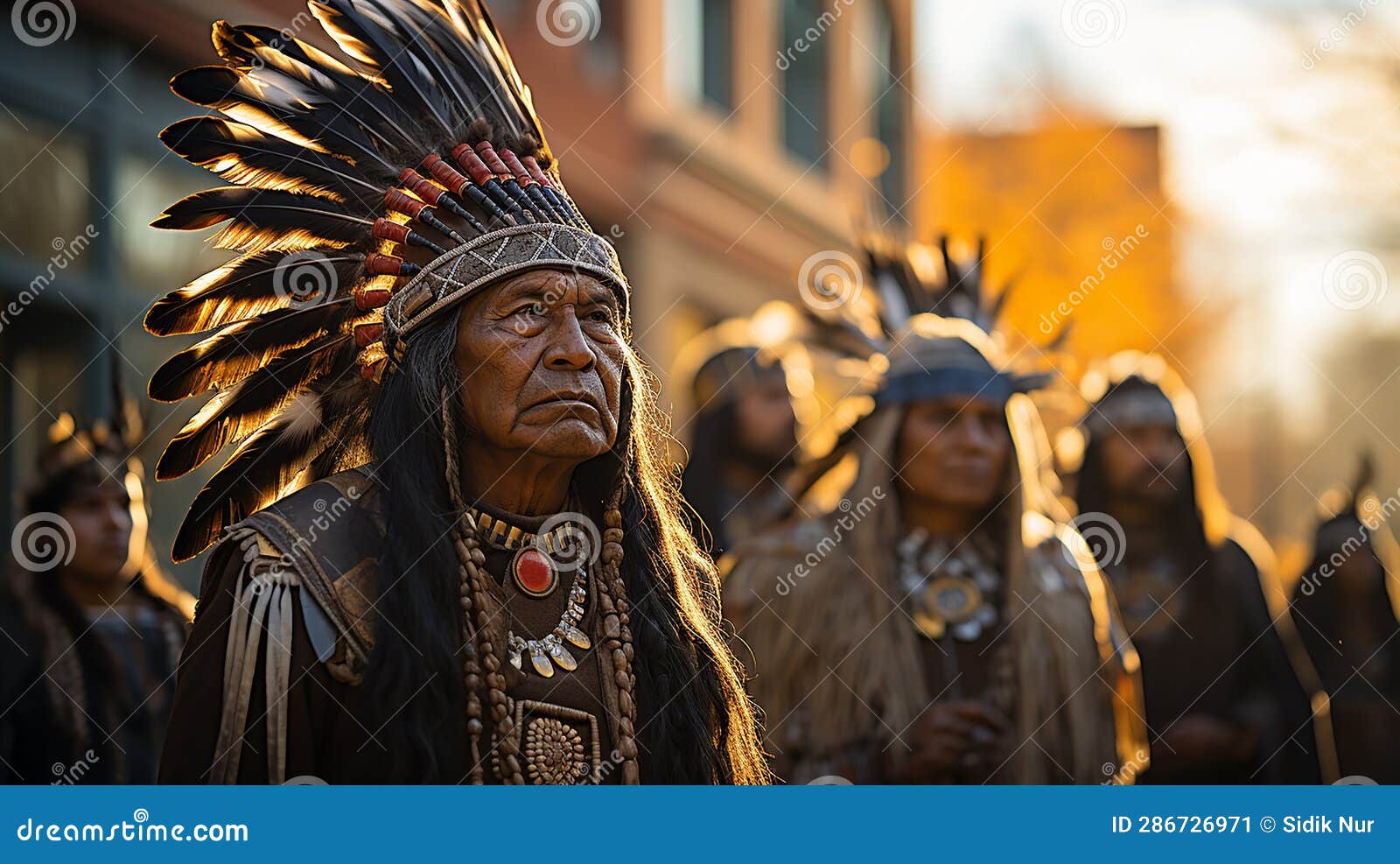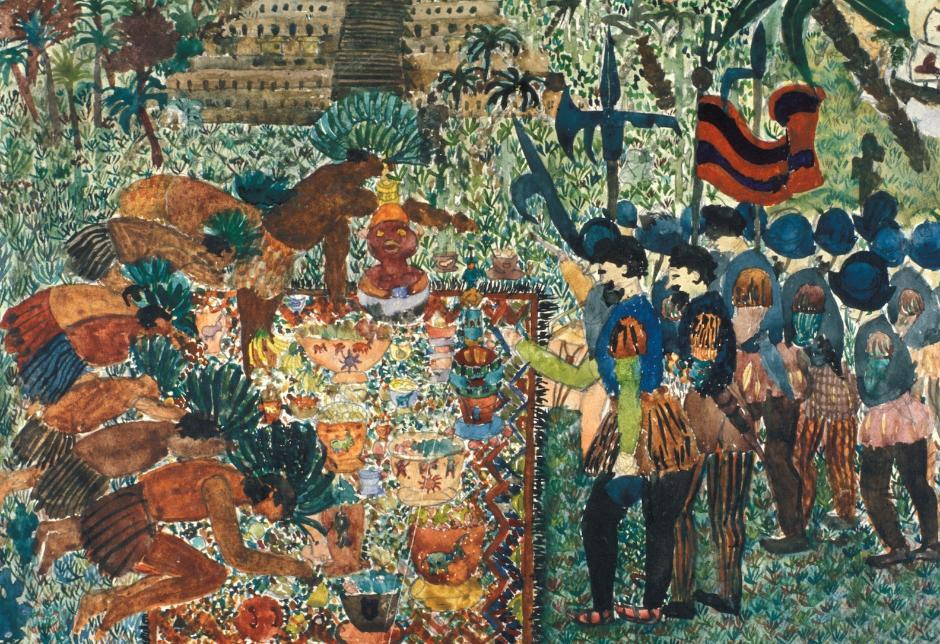Navigating the Complexities of Columbus Day: A Historical and Contemporary Examination
Related Articles: Navigating the Complexities of Columbus Day: A Historical and Contemporary Examination
Introduction
In this auspicious occasion, we are delighted to delve into the intriguing topic related to Navigating the Complexities of Columbus Day: A Historical and Contemporary Examination. Let’s weave interesting information and offer fresh perspectives to the readers.
Table of Content
Navigating the Complexities of Columbus Day: A Historical and Contemporary Examination

The second Monday of October, traditionally observed as Columbus Day, has been a subject of ongoing debate and scrutiny for decades. While the holiday initially celebrated the arrival of Christopher Columbus in the Americas in 1492, its focus has shifted to acknowledge the complex and often tragic history that unfolded in the wake of his voyages. This shift reflects a growing awareness of the devastating impact of European colonization on Indigenous populations and the need for a more nuanced understanding of the past.
Historical Context: The Legacy of Columbus and the Rise of Controversy
Christopher Columbus’s arrival in the Americas, while a significant event in European history, marked the beginning of a period of immense upheaval and suffering for Indigenous peoples. The voyages, initially funded by the Spanish monarchy, led to the establishment of colonial empires, ushering in a wave of exploitation, disease, and violence that decimated Indigenous populations.
The celebration of Columbus Day, initially established in the late 19th century, was largely driven by a desire to celebrate Italian-American heritage and promote a narrative of European dominance. However, as the 20th century progressed, a growing movement emerged to challenge this narrative, highlighting the devastating consequences of colonization and the erasure of Indigenous voices and perspectives.
Shifting Perspectives: The Evolution of the Holiday
The debate surrounding Columbus Day reached a critical juncture in the latter half of the 20th century. Indigenous activists and scholars began to raise their voices, demanding recognition of the historical injustices inflicted upon their ancestors. This movement, coupled with growing awareness of the complexities of colonialism, led to calls for a reassessment of the holiday’s significance.
In 1990, the United States Congress passed a resolution recognizing October as "National Hispanic Heritage Month," a significant step towards acknowledging the contributions of Hispanic Americans. However, the debate surrounding Columbus Day continued, with many arguing that the holiday perpetuated a harmful narrative that glorified colonialism and minimized the suffering of Indigenous peoples.
Contemporary Debates: Reframing the Narrative
The debate surrounding Columbus Day remains a complex and multifaceted issue. Some argue that the holiday should be abolished entirely, citing its association with historical injustices and the need for a more inclusive and accurate understanding of the past. Others propose renaming the holiday to "Indigenous Peoples’ Day," a move that acknowledges the contributions of Indigenous peoples and their resilience in the face of colonization.
The debate also extends to the realm of educational materials and historical narratives. There is a growing push to incorporate Indigenous perspectives and experiences into curriculum and public discourse, challenging the traditional Eurocentric view of history and promoting a more inclusive and accurate understanding of the past.
The Importance of Critical Examination: Moving Forward
The ongoing debate surrounding Columbus Day serves as a crucial reminder of the importance of critical examination and historical awareness. It compels us to confront the complexities of the past, acknowledge the injustices inflicted upon Indigenous peoples, and strive for a more inclusive and equitable future.
FAQs on Columbus Day
1. What is the history of Columbus Day?
Columbus Day was established in the late 19th century to celebrate the arrival of Christopher Columbus in the Americas in 1492. The holiday was initially intended to celebrate Italian-American heritage and promote a narrative of European dominance.
2. Why is Columbus Day controversial?
Columbus Day is controversial because it has been criticized for perpetuating a harmful narrative that glorifies colonialism and minimizes the suffering of Indigenous peoples. The arrival of Columbus marked the beginning of a period of immense upheaval and violence for Indigenous populations, leading to the decimation of their cultures and societies.
3. What are the arguments for abolishing Columbus Day?
Those who advocate for abolishing Columbus Day argue that it is a harmful celebration of a figure who represents oppression and violence against Indigenous peoples. They believe that the holiday perpetuates a distorted and inaccurate view of history, and that it is disrespectful to the descendants of those who suffered under colonial rule.
4. What are the arguments for renaming Columbus Day to Indigenous Peoples’ Day?
Proponents of renaming Columbus Day to Indigenous Peoples’ Day believe that it is a necessary step towards acknowledging the contributions and resilience of Indigenous peoples. They argue that the change would reflect a more accurate and inclusive understanding of history, and would honor the cultures and traditions of Indigenous communities.
5. How is the debate surrounding Columbus Day evolving?
The debate surrounding Columbus Day is evolving as more people become aware of the historical injustices inflicted upon Indigenous peoples. There is a growing push to incorporate Indigenous perspectives and experiences into curriculum and public discourse, challenging the traditional Eurocentric view of history and promoting a more inclusive and accurate understanding of the past.
Tips for Navigating the Complexities of Columbus Day
-
Engage in critical thinking and historical analysis: Approach the history of Columbus and his voyages with a critical eye, considering the perspectives of both Europeans and Indigenous peoples.
-
Seek out diverse sources of information: Explore a range of perspectives on Columbus Day, including Indigenous voices and historical accounts that challenge the traditional narrative.
-
Engage in respectful dialogue: When discussing Columbus Day, strive for respectful and open-minded communication, acknowledging the different perspectives and experiences that shape the debate.
-
Support initiatives that promote Indigenous rights and recognition: Advocate for policies and programs that support Indigenous communities and their cultural preservation.
-
Educate yourself and others: Share your knowledge of the history of Columbus Day and its impact on Indigenous peoples with others, promoting a more accurate and inclusive understanding of the past.
Conclusion
The debate surrounding Columbus Day reflects a broader societal shift towards a more nuanced and inclusive understanding of history. It compels us to confront the complexities of the past, acknowledge the injustices inflicted upon Indigenous peoples, and strive for a future where all voices are heard and respected. As we continue to navigate this complex issue, it is essential to approach the discussion with critical thinking, empathy, and a commitment to promoting justice and equity for all.








Closure
Thus, we hope this article has provided valuable insights into Navigating the Complexities of Columbus Day: A Historical and Contemporary Examination. We hope you find this article informative and beneficial. See you in our next article!